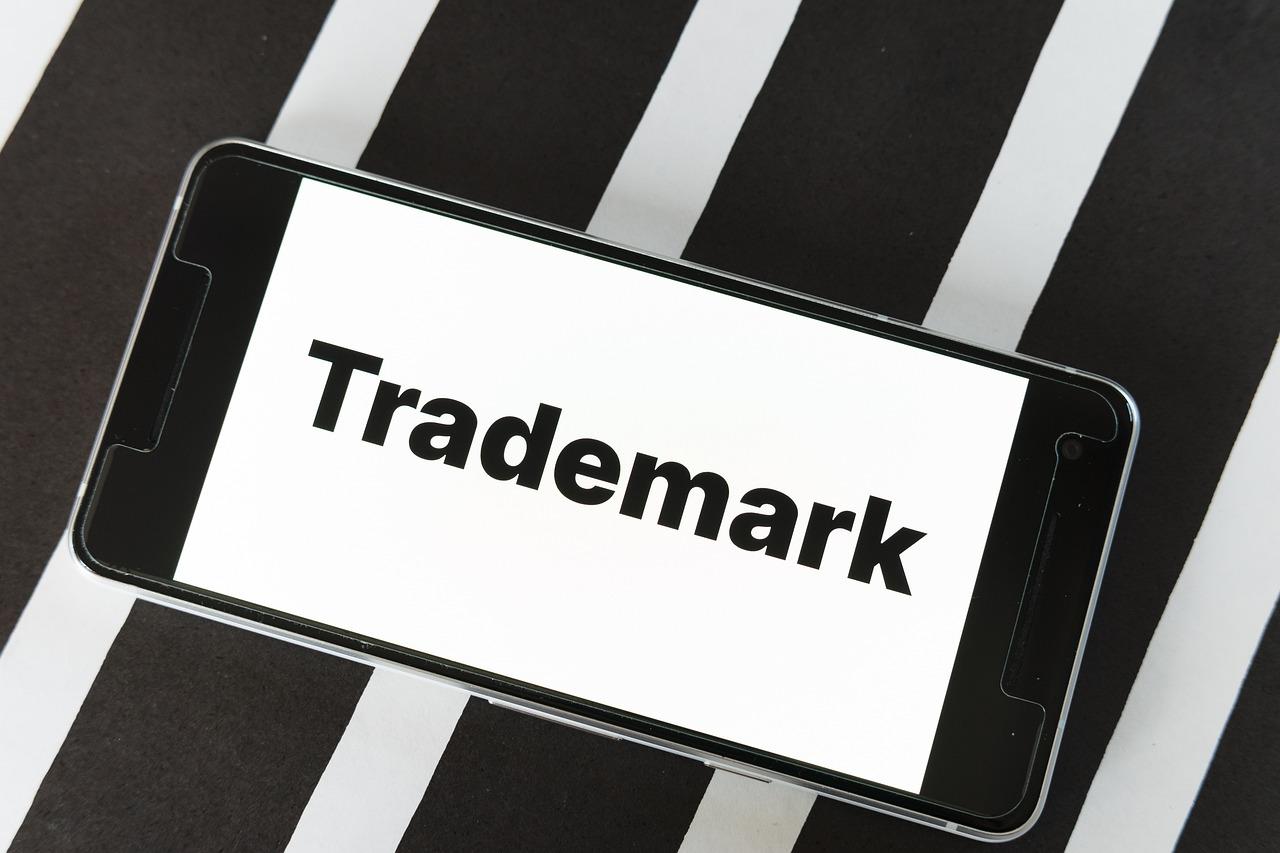Navigating compliance on your WordPress website is essential for success. Understanding licensing and legal use not only protects your content but also fosters trust with your audience. Embrace these guidelines to elevate your online presence and inspire confidence!
Navigating Compliance in Your WordPress Website: Understanding Licensing and Legal Use
In the digital landscape where creativity flourishes and innovation knows no bounds, building a WordPress website is often the first step toward sharing your vision with the world. However, as you embark on this exciting journey, it’s crucial to navigate the often-overlooked terrain of compliance. Understanding licensing and legal use is not just a bureaucratic hurdle – it’s an essential part of protecting your hard work and ensuring that your online presence resonates with integrity. This article will serve as your compass, guiding you through the intricacies of compliance and empowering you to harness the full potential of your WordPress site. By demystifying the complexities of copyright, licensing, and legal considerations, we aim to inspire you to create confidently, ensuring that your digital creations are not only impactful but also compliant. Join us as we delve into the essentials of navigating compliance, transforming potential pitfalls into stepping stones for your website’s success.
Understanding the Importance of Compliance in the Digital Age
In an increasingly digitized world, compliance is more than just a set of regulations to follow; it is a crucial aspect of building trust with your audience. For a WordPress website owner, understanding the nuances of compliance, especially in areas like licensing and legal use, can set your site apart and foster a secure online environment.
One of the primary areas where compliance plays a vital role is in the use of copyrighted materials. Whether it’s images, videos, or written content, using materials without proper licenses can lead to severe legal consequences. Here are some key points to consider:
- Always verify the license: Ensure that any media you use is either created by you or has a license that allows for its use, such as Creative Commons.
- Give credit where it’s due: If the license requires attribution, make sure to provide clear and proper credit to the original creator.
- Stay updated: Licenses can change, so regularly check the terms associated with the materials you are using.
Additionally, compliance extends to data protection. With regulations like GDPR and CCPA in place, ensuring that your website collects and handles user data responsibly is paramount. Here’s how you can navigate these waters:
- Implement a privacy policy: Clearly inform visitors about what data you collect and how it will be used.
- Utilize secure forms: Use encryption methods for any forms that collect personal or sensitive information.
- Obtain consent: Make sure you have explicit permission from users before collecting their data.
To visually summarize the key components of compliance, consider this table:
| Compliance Area | Key Actions |
|---|---|
| Copyright | Verify licenses and credit creators |
| Data Protection | Implement privacy policies and secure data handling |
| Accessibility | Ensure content is usable for everyone |
By embracing compliance, you not only shield yourself from potential legal issues but also enhance your brand’s credibility. This proactive approach signifies to your audience that you value their rights and privacy, turning casual visitors into loyal supporters. As you continue to grow your WordPress website, let compliance be a cornerstone of your online strategy, driving both growth and integrity.
Unpacking Licensing: What Every WordPress User Must Know
When you build a WordPress website, understanding licensing is not just a technical requirement; it’s a vital part of your creative journey. Every plugin and theme carries its own licensing terms, and navigating this landscape can seem daunting. However, taking the time to understand these licenses can protect your work and enhance your site’s credibility.
Licensing essentially dictates how you can use, modify, and distribute the digital assets you incorporate into your website. Here are some key points to consider:
- GPL (General Public License): Most WordPress themes and plugins are released under the GPL, which allows you to freely use, modify, and share them as long as you also distribute the same rights to the recipients of your modifications.
- Commercial Licenses: Some premium themes and plugins come with commercial licenses that may restrict usage to a specific number of sites or require a subscription for continued access to updates and support.
- Creative Commons: Content such as images and videos may fall under Creative Commons licenses, which often require attribution or may restrict usage in commercial projects.
To further clarify the types of licenses you might encounter, here’s a brief comparison:
| License Type | Key Features | Restrictions |
|---|---|---|
| GPL | Free to use, modify, and share | None, as long as modifications are also GPL |
| Commercial | Support and updates included | Limited site usage or annual fees |
| Creative Commons | Attribution required, often adaptable | May not be used for commercial purposes |
Always check the licensing terms before incorporating any theme or plugin into your WordPress site. This diligence not only prevents potential legal issues but also fosters a culture of respect within the WordPress community. By adhering to licensing agreements, you contribute to the sustainability and growth of the platform while empowering yourself and others to innovate.
Understanding licensing can also enhance your website’s reputation. When users see that you respect copyright and licensing rules, they are more likely to trust your site. This trust can translate into increased traffic and engagement. So, embrace the power of licensing knowledge, and let it guide your WordPress journey!
The Legal Landscape: Key Regulations Impacting Your Website
Understanding the legal landscape that governs your website is crucial for maintaining compliance and fostering trust with your audience. In the digital age, it’s not just about creating compelling content; it’s also about ensuring that your website adheres to various regulations that protect users and their data. Here are some key regulations you need to be aware of:
- General Data Protection Regulation (GDPR) – This European regulation mandates strict guidelines for the collection and processing of personal information. Ensure you have clear privacy policies and user consent mechanisms in place.
- California Consumer Privacy Act (CCPA) – Similar to GDPR, CCPA empowers California residents with rights regarding their personal data. If your website serves California residents, compliance is not optional.
- Children’s Online Privacy Protection Act (COPPA) – This U.S. law protects the privacy of children under 13. If your site targets or gathers data from children, you must obtain verifiable parental consent.
In addition to these regulations, you should also consider the implications of copyright law and licensing agreements. Using images, videos, or music without appropriate licenses can lead to severe penalties. Here are some tips to ensure you are legally compliant:
- Use royalty-free resources – Websites like Unsplash and Pexels provide high-quality images without copyright issues, perfect for your WordPress site.
- Creative Commons licenses – Familiarize yourself with Creative Commons types to understand how you can legally use and share creative works.
- Attribute authors appropriately – Always give credit to original creators when required by the license.
Table of Key Regulations and Their Impacts
| Regulation | Scope | Compliance Requirements |
|---|---|---|
| GDPR | EU Residents | Privacy Notices, Data Protection Rights |
| CCPA | California Residents | Consumer Rights, Opt-Out Options |
| COPPA | Children Under 13 | Parental Consent, Privacy Policy |
Establishing a culture of compliance not only protects you legally but also enhances your reputation among users. Transparency in how you handle data and content fosters a sense of security and loyalty. Always stay updated on legal changes and consider consulting with a legal professional to ensure your website remains compliant.

Choosing the Right Theme and Plugins: A Guide to Compliance
When it comes to building a compliant WordPress website, the choice of theme and plugins plays a pivotal role. A well-chosen theme not only enhances your site’s aesthetics but also ensures that your site adheres to necessary legal standards. Begin by selecting themes that are GPL licensed, as this guarantees that you have the rights to use, modify, and distribute the theme legally.
Beyond licensing, consider the following key aspects when choosing a theme:
- Accessibility: Ensure your theme supports accessibility standards (WCAG) to reach a broader audience, including individuals with disabilities.
- Responsiveness: Select a theme that is mobile-friendly, as compliance regulations increasingly emphasize usability across all devices.
- SEO Optimization: A theme that is optimized for search engines helps your content reach the right audience while maintaining compliance with search engine guidelines.
Next, let’s talk about plugins. These tools are integral for adding functionality to your site but can also introduce compliance challenges if not selected carefully. Here are some guidelines for choosing compliant plugins:
- Verify Licensing: Just like themes, ensure that plugins are GPL licensed. This not only protects you legally but also supports the open-source community.
- Regular Updates: Choose plugins that are frequently updated to ensure ongoing compatibility with WordPress core updates and compliance with evolving legal standards.
- Security Features: Opt for plugins that focus on security and data protection, as these factors are crucial for compliance with regulations such as GDPR.
To help you make informed decisions, consider the following table that summarizes essential aspects of theme and plugin selection:
| Criteria | Importance | Action |
|---|---|---|
| Licensing | Critical | Choose GPL licensed options |
| Accessibility | High | Ensure WCAG compliance |
| Regular Updates | Essential | Select actively maintained plugins |
| Security | Critical | Prioritize security-focused plugins |
By taking the time to carefully choose your theme and plugins, you lay a solid foundation for your WordPress website’s compliance. Not only does this protect you legally, but it also enhances your site’s reputation, user experience, and overall effectiveness. Remember, compliance is not just about adhering to laws; it’s about building trust with your audience.
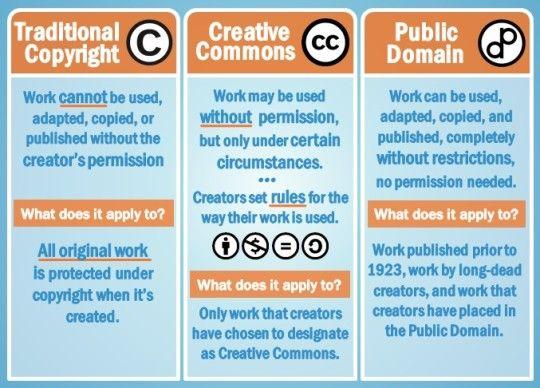
Copyright Awareness: Protecting Your Content and Creations
In the digital landscape, content is king. Whether you’re a blogger, a business owner, or a creative artist, protecting your original work is essential to preserving your intellectual property. Understanding how copyright laws apply to your WordPress website not only safeguards your creations but also empowers you to share your vision confidently.
Key Concepts of Copyright:
- Originality: Your work must be original and created by you to be eligible for copyright protection.
- Automatic Protection: Copyright is automatically granted as soon as you create your work, so registration is not mandatory, though it can offer additional legal benefits.
- Duration: In most cases, copyright lasts for the life of the author plus an additional 70 years, allowing your work to be recognized long after you’re gone.
When building your WordPress site, it’s crucial to respect the copyright of others. This means avoiding unauthorized use of images, text, and other media. Always check the licensing terms of any content you wish to use. Consider utilizing resources that provide royalty-free images and music, such as:
- Unsplash: High-quality images free for commercial and non-commercial use.
- Creative Commons: A licensing system that allows creators to share their work legally.
- Free Music Archive: A platform for free music downloads suitable for various projects.
In addition to protecting your own content, it’s equally important to establish clear guidelines for how others can use your work. By licensing your content effectively, you can control its distribution and derivative uses. Here’s a quick overview of common licensing options:
| License Type | Description |
|---|---|
| All Rights Reserved | Restricts any reproduction or distribution of your work. |
| Creative Commons Attribution | Allows others to use your work with proper attribution. |
| GNU General Public License | Allows users to modify and distribute your software. |
Utilize copyright notices on your website to remind visitors of your rights. This not only acts as a deterrent against infringement but also establishes your claim to ownership. A simple statement like “© [Your Name/Your Company Name] [Year]” can go a long way in reinforcing your copyright status.
Lastly, remain vigilant. Regularly monitor your content online to ensure that it’s not being used without permission. Tools like Google Alerts and reverse image searches can help you track down unauthorized use. Remember, your creations deserve protection, and taking proactive steps to safeguard them fosters a culture of respect for creativity in the digital realm.

Attribution and Respect: Navigating Creative Commons Licenses
Understanding the intricacies of Creative Commons licenses is essential for anyone managing a WordPress website. These licenses empower creators to share their work while retaining certain rights, but they also impose obligations on users. To navigate this landscape effectively, it’s crucial to grasp the fundamental principles of attribution and respect.
When utilizing content under a Creative Commons license, always prioritize proper attribution. This not only honors the original creator’s work but also fosters a culture of respect and collaboration. Here are some key considerations for attributing content:
- Give credit: Always attribute the creator by including their name and the title of the work.
- Link back: Provide a hyperlink to the original source to direct others to the creator’s page.
- Specify the license: Indicate the specific type of Creative Commons license under which the work is shared.
Respecting the terms of the license is equally important. Each Creative Commons license has its own set of rules that dictate how the work can be used. Familiarize yourself with the different types:
| License Type | Permissions | Attribution Required |
|---|---|---|
| CC BY | Use, remix, and build upon | Yes |
| CC BY-SA | Use and remix with share-alike | Yes |
| CC BY-NC | Non-commercial use only | Yes |
| CC BY-ND | No derivatives allowed | Yes |
Incorporating Creative Commons content can enrich your website, but it requires diligence. When you respect the licenses and attribute work correctly, you contribute to a more vibrant and diverse creative community. This practice not only enhances your credibility but also inspires others to engage in ethical sharing practices.
Moreover, consider the potential of collaborating with creators whose work you admire. By approaching them for permissions or partnerships, you can create original content that adds value to your audience while honoring their contributions. This not only deepens relationships within the creative ecosystem but also strengthens the overall integrity of your platform.
embracing the principles of attribution and respect transforms how we interact with creative works. By fully understanding and implementing these practices, your WordPress website can become a beacon of inspiration and resourcefulness, showcasing the beauty of collaboration while adhering to legal standards.

Third-Party Content: Ensuring Legal Use and Avoiding Pitfalls
When incorporating third-party content into your WordPress website, understanding the intricacies of licensing is crucial. Whether it’s images, fonts, videos, or plugins, each type of content comes with its own set of rules and requirements. Ignoring these can lead to legal ramifications that can jeopardize your website and your brand. Here are some essential considerations to keep in mind:
- Check Licensing Agreements: Always read the licensing terms associated with the content you plan to use. Different licenses, such as Creative Commons or proprietary licenses, have varying degrees of restrictions and permissions.
- Attribution Requirements: Many third-party content sources require you to provide credit. Ensure that you comply with these attribution rules to avoid potential copyright issues.
- Commercial Use vs. Personal Use: Clarify whether the content is available for commercial use, especially if your website is monetized. Using content without proper rights can lead to hefty fines.
Another vital aspect of using third-party content is understanding the differences between free and paid options. While free content might seem appealing, it often comes with hidden costs, such as limited usage rights or lower quality. Paid resources frequently provide higher quality and more flexible licensing options, reducing the risk of legal complications.
Consider creating a content inventory where you document the sources, licensing types, and attributions for every piece of third-party content you use. This practice not only helps in maintaining compliance but also serves as a quick reference for future projects. Below is a simple table to illustrate what your content inventory might look like:
| Content Type | Source | License Type | Attribution Required |
|---|---|---|---|
| Image | Unsplash | Creative Commons | No |
| Font | Google Fonts | Open Source | No |
| Video | Pexels | Creative Commons | Yes |
Lastly, remember that even open-source content comes with responsibilities. Just because something is free does not mean it’s free of obligations. Upholding ethical standards in content use not only protects you legally but also contributes to a positive online community. By fostering respect for creators, you inspire others to do the same, creating a thriving ecosystem of shared knowledge.
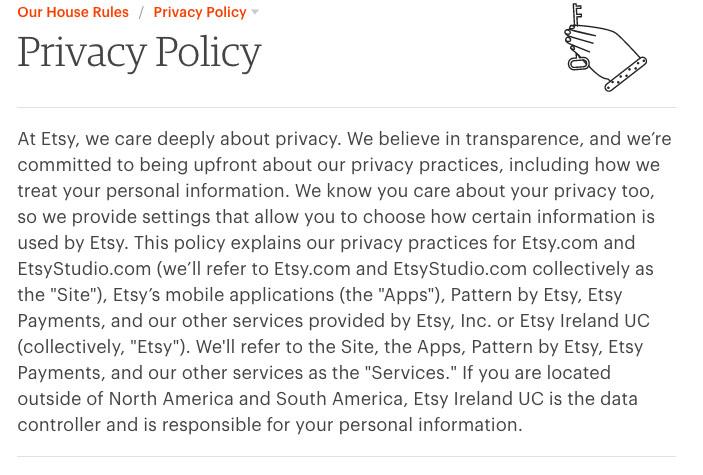
Privacy Policies: Crafting a Transparent Framework for Your Users
In today’s digital landscape, ensuring that your users’ privacy is prioritized is not just a regulatory requirement—it’s a vital component of building trust and credibility. A robust and transparent privacy policy demonstrates your commitment to protecting user data and fosters a sense of security among your audience. By clearly outlining how their information will be collected, used, and safeguarded, you create a foundation for a lasting relationship with your users.
When drafting a privacy policy, consider addressing the following key components:
- Information Collection: Specify what types of data you collect, such as personal information, browsing behavior, and cookies.
- Data Usage: Explain how the collected information will be utilized, including purposes like improving user experience, marketing, or analytics.
- Data Sharing: Clarify whether any personal data will be shared with third parties and under what circumstances.
- User Rights: Inform users about their rights regarding their data, including the ability to access, modify, or delete their information.
Utilizing a clear and concise format helps your users easily digest the information. Consider incorporating tables for better clarity. For instance, you might use one to compare the types of data collected and their uses:
| Data Type | Usage |
|---|---|
| Contact Information | To communicate updates and promotions |
| Browsing Data | To enhance website functionality and user experience |
| Transaction Data | To process orders and manage user accounts |
Furthermore, ensure that your privacy policy is easily accessible on your WordPress site. Placing a direct link in the footer or during the sign-up process makes it easy for users to read and understand their rights. A visible presence also signals transparency, reinforcing that you value their trust.
keep your privacy policy updated in accordance with evolving regulations, such as GDPR or CCPA. Periodically reviewing your practices ensures compliance and reflects any changes in your data collection or handling procedures. By committing to these practices, you position your website as a leader in privacy and compliance, setting a standard in your industry.
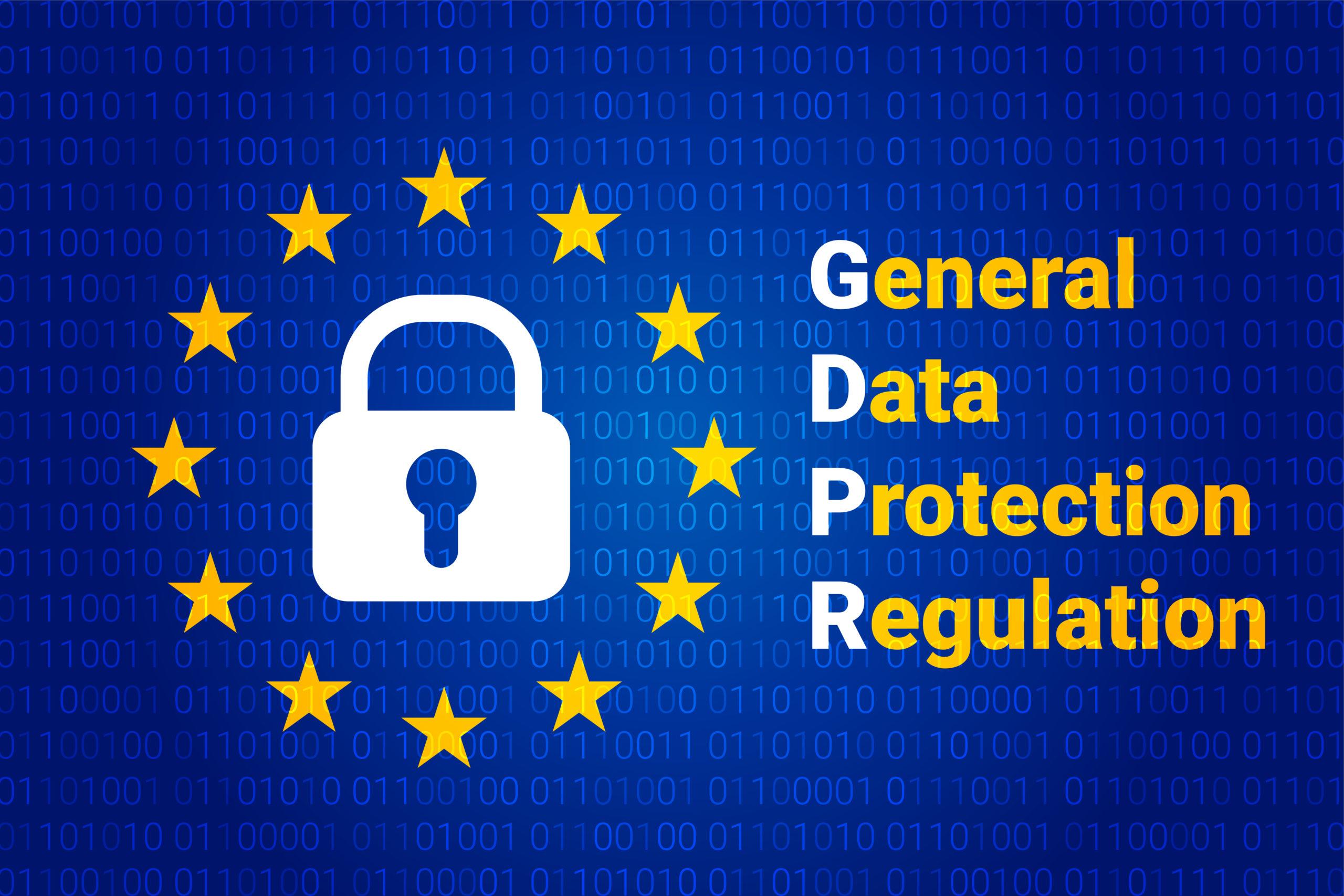
GDPR and Data Protection: Steps to Safeguard User Information
The General Data Protection Regulation (GDPR) has significantly transformed the way businesses handle user information. For WordPress website owners, compliance isn’t just a legal obligation; it’s a commitment to the privacy and security of your users. Here are actionable steps to ensure you safeguard user data effectively:
- Understand Your Data: Identify what personal data you collect, how it’s processed, and where it’s stored. This foundational understanding is crucial for compliance.
- Implement User Consent: Use clear and unambiguous language when asking for user consent. Ensure that consent options are easily accessible and that users can withdraw their consent at any time.
- Privacy Policy Updates: Create a comprehensive privacy policy that outlines how you collect, use, and protect user data. Make sure it’s easily accessible on your website.
- Data Protection Measures: Utilize security plugins and practices to protect user data. Regularly update your WordPress site, themes, and plugins to patch vulnerabilities.
- Data Breach Protocols: Establish a clear response plan for potential data breaches. This includes notifying affected users within 72 hours of becoming aware of the breach.
Furthermore, educating your team about GDPR principles is vital. Provide training on data protection standards and keep everyone informed about the importance of safeguarding user information.
| Key GDPR Principle | Description |
|---|---|
| Lawfulness | Data must be processed lawfully, fairly, and transparently. |
| Data Minimization | Only collect data that is necessary for the intended purpose. |
| Accuracy | Ensure personal data is accurate and kept up to date. |
| Storage Limitation | Personal data should not be kept longer than necessary. |
Lastly, consider hiring a Data Protection Officer (DPO) or consulting with experts in GDPR compliance. This strategic investment can provide peace of mind and ensure that you are not only compliant but also building trust with your users.
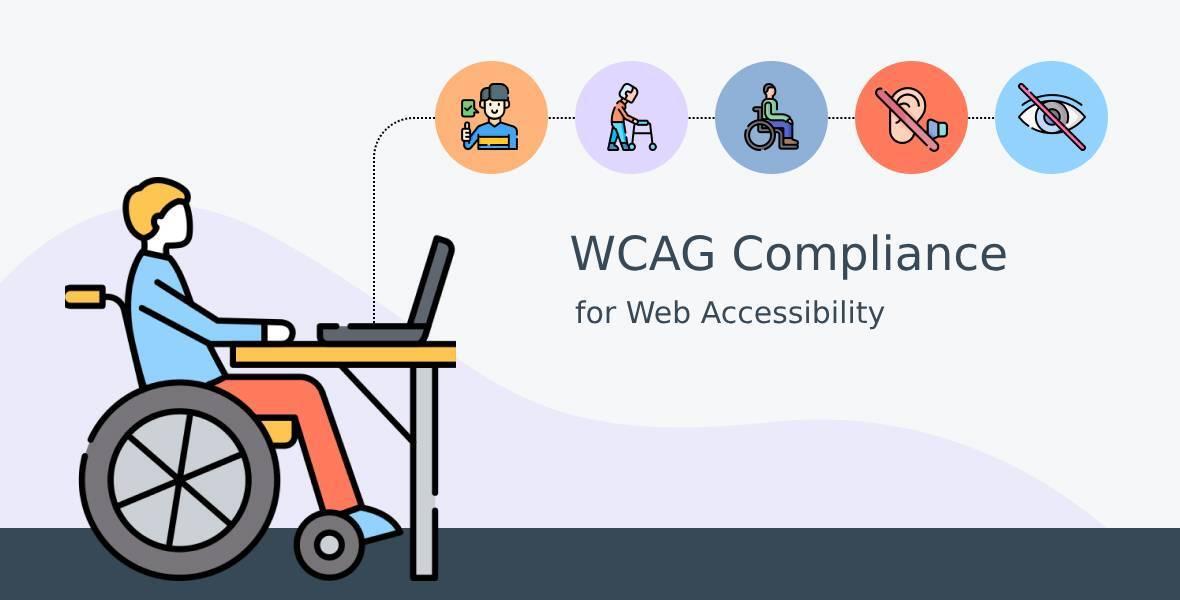
Accessibility Compliance: Making Your Website Inclusive for All
In today’s digital landscape, ensuring that your website is inclusive for all users is not just a best practice; it’s a fundamental obligation. Accessibility compliance is central to creating a welcoming online environment. By prioritizing accessibility, you are not only adhering to legal standards but also expanding your audience reach and enhancing user experience.
To achieve accessibility compliance in your WordPress website, consider the following key principles:
- Perceivable: All users should be able to access and comprehend your content. Utilize text alternatives for non-text content to support users with visual impairments.
- Operable: Ensure that all interactive elements are accessible via keyboard navigation. Avoid time limits that may hinder users with disabilities.
- Understandable: Use clear and simple language. Ensure that your website operates in predictable ways, allowing users to navigate without confusion.
- Robust: Develop content that can be interpreted reliably by various user agents, including assistive technologies.
Implementing these principles can set your website apart, fostering an environment where every user feels valued. For WordPress users, there are various plugins designed to enhance accessibility. Some popular options include:
| Plugin Name | Description |
|---|---|
| WP Accessibility | Enhances accessibility features such as skip links and alt text prompts. |
| One Click Accessibility | Offers accessibility options that users can toggle for a better experience. |
| Accessibility Widget | Provides a customizable widget to assist users in navigating your site. |
Regularly testing your website’s accessibility is equally important. Utilize tools like WAVE and The A11Y Project to evaluate and improve your site’s compliance. These resources can identify areas requiring attention, enabling you to refine and optimize the user experience.
Ultimately, embracing accessibility compliance is about more than just meeting legal requirements; it’s about fostering inclusivity and respect for all individuals. By making your WordPress website more accessible, you not only enhance your compliance but also create a positive impact in the lives of many. Let your website be a beacon of inclusivity, welcoming every visitor with open arms.
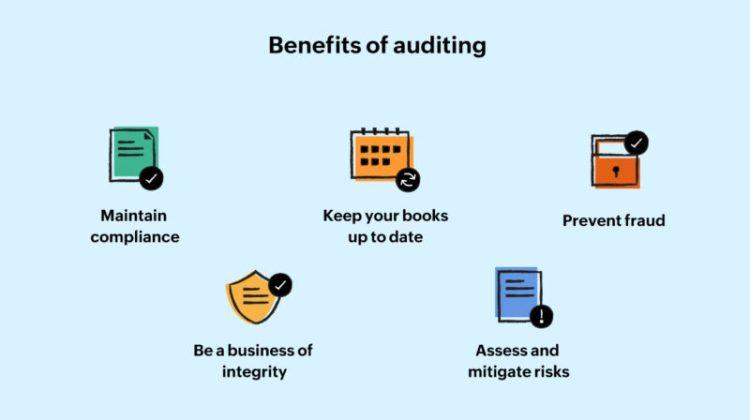
Regular Audits: The Importance of Staying Updated on Compliance
In the fast-paced digital landscape, staying compliant with the latest regulations and licensing agreements is not just a matter of following the law; it’s a vital aspect of maintaining trust with your users and protecting your online reputation. Regular audits play a crucial role in ensuring that your WordPress website adheres to current compliance standards, ultimately safeguarding your business from potential legal pitfalls.
Conducting routine audits allows you to:
- Identify Gaps: Recognize areas where your website may not meet compliance requirements.
- Update Licenses: Ensure all themes, plugins, and media used are properly licensed and up to date.
- Enhance Security: Mitigate risks associated with non-compliance that could lead to data breaches.
- Boost User Confidence: Demonstrate your commitment to ethical practices and build trust with your audience.
Moreover, the regulatory landscape is constantly evolving, making it essential to stay informed about changes that could impact your website. For instance, GDPR, CCPA, and other privacy laws have introduced stringent requirements for data collection and usage. Regular audits can help you adapt to these changes smoothly and efficiently, ensuring that your site remains compliant and user-friendly.
In addition to legal compliance, audits can also enhance the overall performance of your website. Analyzing your plugins and themes for licensing can help you:
- Improve Site Speed: Identify and remove unnecessary components that may slow down your site.
- Reduce Conflicts: Uncover compatibility issues between plugins that could impact your site’s functionality.
- Optimize SEO: Ensure that all elements of your site are in line with best practices for search engine visibility.
| Audit Focus | Benefits |
|---|---|
| Licensing Verification | Protect against copyright infringement. |
| Data Protection Compliance | Avoid hefty fines and legal repercussions. |
| Plugin & Theme Analysis | Enhance site performance and user experience. |
Ultimately, investing time and resources in regular audits not only ensures compliance but also positions your WordPress website for success. By embracing a proactive approach to compliance, you can navigate potential challenges with ease, allowing you to focus on what truly matters: creating exceptional content and engaging with your audience.
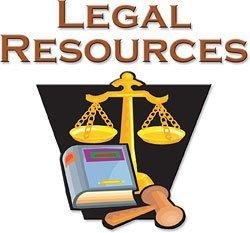
Resources and Tools: Empowering Yourself for Legal Success
When it comes to navigating compliance with your WordPress website, knowledge is your strongest ally. Equip yourself with a wealth of resources that not only enhance your understanding of legal use but also empower you to manage licensing effectively. Here are some essential tools and platforms that can guide you through this intricate landscape:
- WordPress Codex: The official documentation for WordPress, providing invaluable insights into legal aspects, including licensing and permissions.
- Creative Commons: A vital resource for understanding different types of licenses that can be applied to your content, ensuring you respect others’ rights while protecting your own.
- GPL (General Public License): Familiarize yourself with this foundational license that governs most WordPress themes and plugins. Understanding the GPL can help you ensure compliance with the software you use.
- Copyright.gov: A straightforward guide to copyright laws, offering resources on how to register your content and what constitutes fair use.
Utilizing these resources allows you to dive deeper into the complexities of legal compliance. However, having the right tools at your fingertips can make all the difference. Consider integrating the following tools into your workflow:
- Licensing Plugins: Utilize plugins like WP License Manager or Easy Digital Downloads to effectively manage your content’s licenses and rights.
- Image Copyright Checkers: Tools like TinEye or Google Reverse Image Search help you ensure that images you intend to use are free from copyright issues.
- Legal Compliance Checklists: Create checklists tailored to your specific needs, ensuring that every aspect of your site meets legal standards, from privacy policies to terms of service.
Furthermore, maintaining a clear understanding of your legal rights and obligations is crucial. Here’s a simple comparison table that highlights different types of licenses you might encounter when working with WordPress:
| License Type | Description | Usage Rights |
|---|---|---|
| Public Domain | Content free for use without restrictions. | Unlimited |
| Creative Commons Attribution | Allows use with credit to the creator. | Credit required |
| GPL | Allows modification and redistribution under the same license. | Modified use allowed |
Empower yourself by actively engaging with these resources and tools. Knowledge, combined with the right strategies, will ensure that your WordPress website remains compliant and thrives in a competitive digital landscape. Remember, understanding your legal obligations not only protects you but also enhances your credibility and trustworthiness in the eyes of your audience.
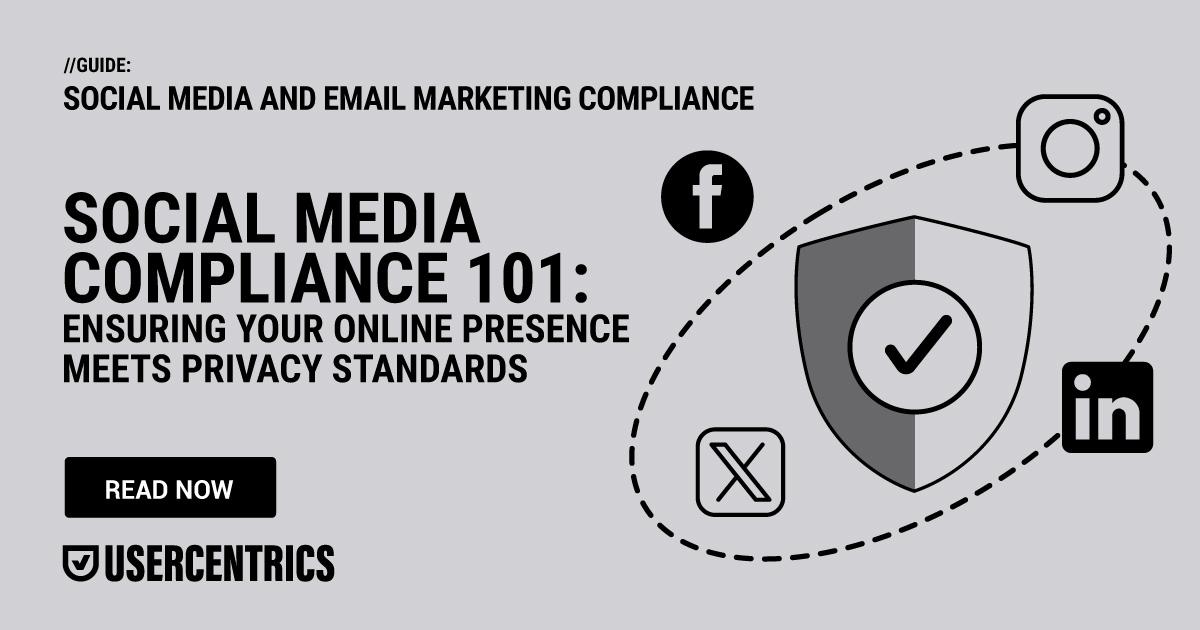
The Road Ahead: Building a Compliant and Ethical Online Presence
As we navigate the digital landscape, establishing a compliant and ethical online presence is more crucial than ever. A well-structured WordPress website not only showcases your brand but also ensures you adhere to legal requirements. Understanding licensing and legal use is fundamental to building a trustworthy online environment. Let’s explore the key elements you need to consider to stay compliant while creating engaging content.
1. Licensing Your Content
When it comes to the content you publish, it’s essential to respect the intellectual property rights of others. This involves:
- Understanding Copyright: Always check if your content is original or if it requires attribution.
- Choosing the Right License: Consider Creative Commons licenses that allow you to use others’ work legally, with specified conditions.
- Utilizing Public Domain Resources: Leverage materials that are no longer under copyright for your projects.
2. Legal Use of Images and Media
Visual content can significantly enhance your website’s appeal, but it’s vital to ensure that you have the right to use every image or video. Here are some strategies to maintain compliance:
- Stock Photos: Use reputable stock photo websites that provide images under appropriate licenses.
- Attribution: When using work from others, always give proper credit according to the licensing agreement.
- Creating Your Own: Invest time in creating original graphics or images that reflect your brand.
3. Data Protection and Privacy
With the rise of data privacy regulations, such as GDPR and CCPA, understanding how to manage user data ethically is paramount. Implementing clear policies and practices will not only keep you compliant but also build trust with your audience. Consider the following:
- Privacy Policies: Create transparent privacy policies that inform users how their data will be used.
- Consent Management: Utilize plugins that facilitate consent for cookies and data collection.
- Data Integrity: Regularly audit your site to ensure that data stored is secured and used ethically.
4. Accessibility Considerations
Building an inclusive online presence involves ensuring your website is accessible to everyone, including individuals with disabilities. Here are some best practices:
- Use Alt Text: Ensure all images have descriptive alt text for screen readers.
- Keyboard Navigation: Design your site to be navigable via keyboard, ensuring it is user-friendly.
- Color Contrast: Utilize color schemes that provide adequate contrast for readability.
By prioritizing compliance and ethics in your WordPress website, you not only protect yourself from potential legal issues but also foster a positive relationship with your audience. Taking these proactive steps lays the foundation for a resilient and reputable online presence that stands the test of time, ensuring your community thrives in a secure digital space.
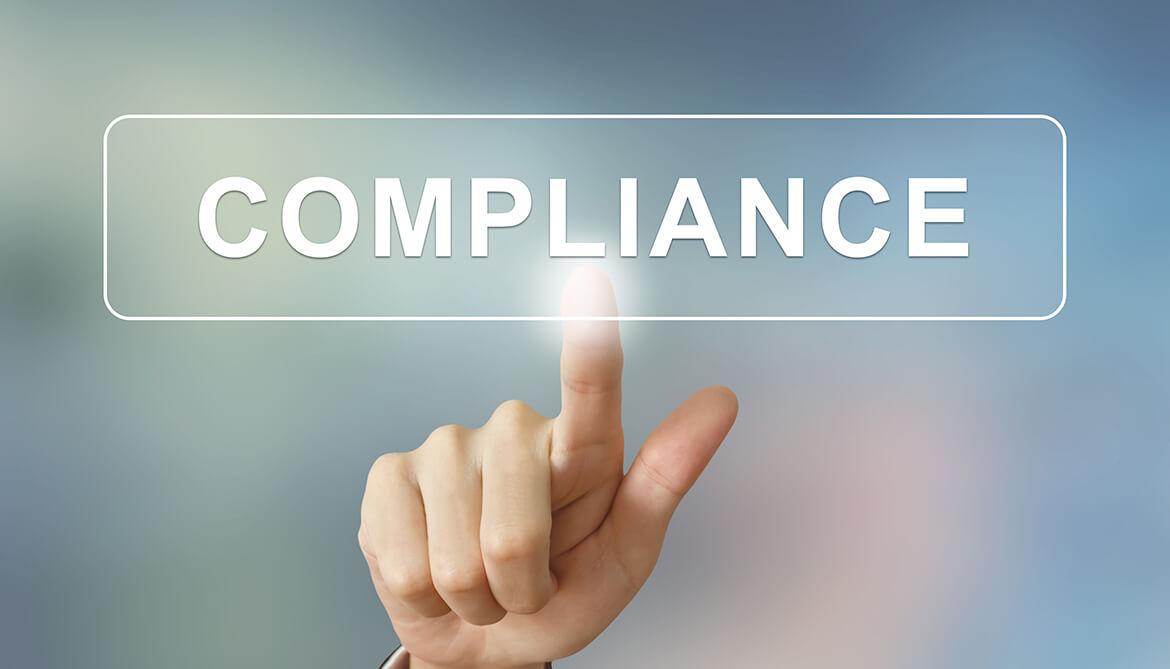
Inspiring Confidence: How Compliance Can Enhance Your Brand
In the digital age, compliance isn’t just a legal necessity—it’s a powerful tool for building trust and enhancing your brand’s reputation. When you prioritize compliance on your WordPress website, you send a clear message to your audience: you value their safety and the integrity of your services. This commitment can be particularly persuasive, as customers are more inclined to engage with brands that demonstrate transparency and responsibility.
Understanding the nuances of licensing and legal use is essential for maintaining this trust. Various licenses accompany themes and plugins, dictating how you may utilize them. By adhering to these licensing agreements, you not only respect the rights of creators but also reinforce your own credibility. Here are some key benefits of embracing compliance:
- Enhanced Credibility: A compliant website showcases your commitment to ethical practices.
- Customer Trust: Navigating the legal landscape with care helps build a loyal customer base.
- Minimized Legal Risks: Understanding your obligations can prevent costly legal disputes.
To help you navigate the complexities of compliance, consider familiarizing yourself with common licensing types. Here’s a brief overview:
| License Type | Description |
|---|---|
| GPL (General Public License) | Permits modification, distribution, and use without restrictions. |
| MIT License | Allows for reuse with credit to the original creator. |
| Creative Commons | Enables sharing while establishing specific usage rights. |
In addition to licensing, copyright laws play a significant role in compliance. Ensure that all images, videos, and text on your site are either owned or properly licensed. Utilizing stock images or creative commons resources can help maintain compliance without sacrificing quality. Remember, displaying original or properly attributed content strengthens your brand’s authority and enhances your audience’s perception of your professionalism.
Investing in expert guidance can also be a game-changer. Legal professionals specializing in digital compliance can help you tailor your website to meet all necessary regulations. This proactive approach not only protects your business but also conveys a strong commitment to ethical practices—qualities that resonate deeply with consumers.
Ultimately, compliance is about more than just following the rules; it’s about embedding a culture of integrity within your brand. By prioritizing compliance on your WordPress website, you can inspire confidence among your visitors, leading to stronger relationships and sustained growth. In this way, compliance becomes a cornerstone of your brand identity, inviting more customers to connect with you.
Frequently Asked Questions (FAQ)
Q&A: Navigating Compliance in Your WordPress Website: Understanding Licensing and Legal Use
Q: Why is compliance so critical for my WordPress website?
A: Compliance is the backbone of a trustworthy online presence. By adhering to licensing and legal regulations, you not only protect your website from potential legal issues but also build credibility with your audience. Presenting a compliant site shows that you respect intellectual property and value the rights of content creators, which can inspire trust and loyalty in your visitors.
Q: What types of licenses should I be aware of when using content on my website?
A: There are several types of licenses you should consider, including Creative Commons, GPL (General Public License), and proprietary licenses. Understanding these can empower you to use images, videos, themes, and plugins legally and ethically. Embracing open-source resources can not only enhance your website but also foster a community spirit, encouraging collaboration and innovation.
Q: How does using licensed content enhance my website?
A: Utilizing licensed content allows you to enrich your site with high-quality resources while ensuring that you’re respecting copyright laws. This not only elevates the user experience but also strengthens your brand’s professionalism. When you curate content legally, you open doors to creative partnerships and collaborations, leading to more opportunities and growth.
Q: Can you explain the importance of user-generated content (UGC) and its compliance aspects?
A: User-generated content is a powerful tool for engagement and community building. However, it’s essential to establish clear guidelines for its use. Always ask for permission and give credit where it’s due. This practice not only complies with legal standards but also fosters goodwill within your community. By valuing contributions from your users, you inspire loyalty and encourage more interaction.
Q: What steps can I take to ensure my WordPress site remains compliant?
A: Start by educating yourself about the different types of licenses and their requirements. Use reputable sources for images, plugins, and themes—preferably those that are open-source or carry clear licensing information. Regularly review your content to ensure it complies with copyright laws and update your policies as necessary. Creating a compliance checklist can serve as a helpful guide to keep your site aligned with legal standards.
Q: How can I inspire others to prioritize compliance in their own websites?
A: Lead by example! Share your journey of navigating compliance openly on your blog or social media platforms. Create informative content that demystifies licensing and legal use, offering tips and resources. By showcasing the benefits of compliance, you can inspire others to follow suit, fostering a culture of respect and integrity within the digital community.
Q: What is the first step I should take if I feel overwhelmed by compliance issues?
A: Take a deep breath and remember that you’re not alone in this journey. The first step is to educate yourself—start by researching licensing terms and familiarize yourself with WordPress’s compliance resources. Seek guidance from online communities or forums, and don’t hesitate to consult with a legal professional if needed. Empower yourself with knowledge, and transform compliance from a burden into a catalyst for creativity and growth.
By understanding and embracing the intricacies of compliance, you can transform your WordPress website into a beacon of trust and inspiration. Let’s embark on this journey together, championing the principles of legality and ethical use in the digital world!
Insights and Conclusions
As we conclude our exploration of navigating compliance for your WordPress website, it’s clear that understanding licensing and legal use is not just a necessity—it’s an opportunity. By embracing these guidelines, you’re not only protecting your site from legal pitfalls but also empowering yourself to create a vibrant, innovative online presence.
Remember, compliance is not about restrictions; it’s about unlocking your website’s full potential. Each piece of content you create, every plugin you integrate, and all the themes you choose contribute to a unique digital narrative. When you respect the rules of copyright and licensing, you build trust with your audience and enhance your credibility as a creator.
So, as you move forward, take the knowledge you’ve gained and apply it with confidence. Let compliance be the foundation upon which you build your online empire, inspiring creativity and fostering a community that values integrity. Together, we can navigate the complexities of the digital landscape, championing the principles of respect and responsibility while achieving our dreams.
Now is the time to take action. Review your current site, assess your compliance, and make the necessary adjustments. Your journey towards a legally sound and ethically vibrant WordPress site starts today. The path may seem daunting, but remember: the most successful creators are those who embrace challenges as stepping stones. With determination and the right information, you can unleash the full potential of your digital vision—one compliant step at a time.
